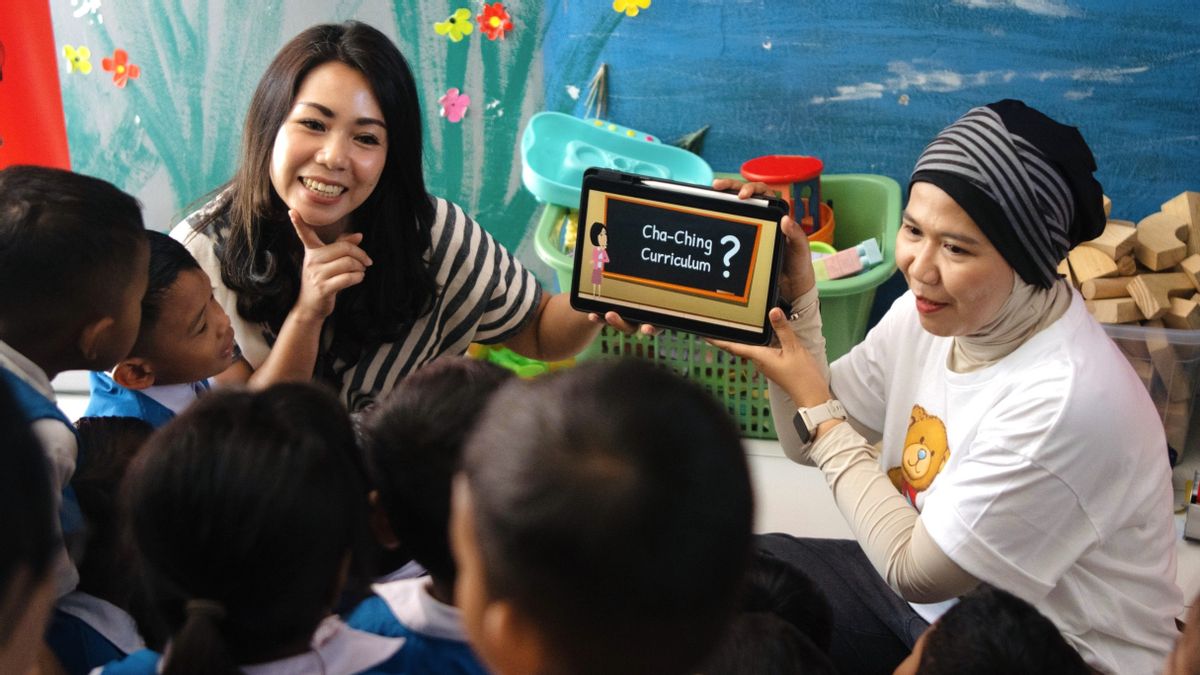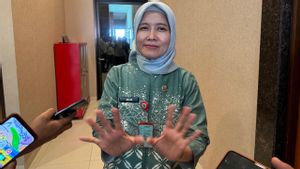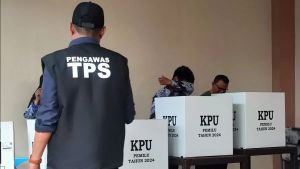JAKARTA - In order to improve the quality of education for early childhood, PT Prudential Life Assurance (Prudential Indonesia) together with the Prudence Foundation collaborated with UNICEF Indonesia to hold a quality Early Childhood Education (PAUD) program in Rote Ndao Regency, East Nusa Tenggara (NTT).
This program carries a mission to educate and reach 1,600 children aged 4-6 years, 1,600 parents and caregivers, as well as 140 teachers in the period 2023 to 2025 in the Rote Ndao area.
This activity includes several activities, including training for PAUD teachers, support for Educational Equipment Equipment (APE), and activities involving parents. The teachers and managers of PAUD also get knowledge of how to support students to have socio-emotional, pre-litered and numerical basic skills through the learning method based on playing, as well as the manufacture of interesting and easy-to-be-made teaching materials locally.
PAUD is an important platform to optimally encourage children's growth and development, through a child-centered approach and a fun learning strategy, as well as to stimulate the child's physical, motor, cognitive, language and socio-emotional needs. This quality PAUD service does not focus on the learning process alone, but also strives to meet the essential needs of children such as good health, adequate nutrition, responsive parenting, and safety and safety.
UNICEF's global and special research conducted by UNICEF states that children who take part in PAUD have proven to have better basic literacy and numeracy skills and have psychological readiness to attend school, so that they are free from knowledge gaps and increase their social adaptability. In addition, quality PAUD can also reduce the possibility of classroom repetition during early basic education classes, higher learning results, and increased the possibility of completing high school.
Chief Customer and Marketing Officer, Prudential Indonesia, Karin Zulkarnaen, said that the first six years were the most important period in the development phase of a child.
"Investing in quality early childhood learning and development is not only beneficial for children, but also for the strengthening of society for the long term. By providing children with a strong foundation for learning and developing themselves, they can achieve full potential and contribute to the progress of the community and the surrounding environment," he said, in a written statement, Wednesday, October 2.
The Sustainable Development Goals (SDG) from the United Nations targets the PAUD Participation Rate to be 100% worldwide by 2030. Meanwhile, based on the Central Statistics Agency, the Pure Participation Rate (APM) of children participating in PAUD in Indonesia only reached 35.93 percent in 2023.
Thus, there is still much to be done to be able to encourage an increase in PAUD Participation Rates, especially in remote areas in Indonesia such as in East Nusa Tenggara (NTT). This is at the same time considering that NTT has the largest proportion of early childhood in Indonesia (namely 13.76 percent of the total population in NTT).
In Rote Ndao Regency, East Nusa Tenggara, 5,223 children are served in 195 PAUD units facilitated by 356 teachers, of which 309 are honorary teachers, funded by local foundations and village governments. Regarding the quality of PAUD units, of 195 only 41 percent of PAUD services at Rote Ndao have been accredited.
While 46 PAUD units (27 percent) of 169 reported in the Education Report Data on Rote Ndao as having a 'good service level', are assessed based on the implementation of at least seven of the eight essential needs services for children.
"Prudential Indonesia realizes that Early Childhood Education (PAUD) is a shared responsibility that must be carried out simultaneously and together. For this reason, we together with the Prudence Foundation support the efforts of the Indonesian government by mobilizing PAUD's responsibilities, as the forerunner of a learning process that is very important in shaping the basis of children's knowledge and skills. Collaborating with UNICEF Indonesia, we hope to create a positive impact that is sustainable and can contribute to shaping a generation of high quality, competent and competitiveness for Indonesia Gold, in line with Prudential Indonesia's commitment to become a trusted partner and protector for the current generation and later," Karin added.
Chief of Education, UNICEF Indonesia, Katheryn Bennett, said, armed with the experience of UNICEF for 70 years working with children and women, his party hopes to support the efforts of the Indonesian government in early childhood education in Rote Ndao Regency, NTT.
Our goal is to help build a foundation for children to contribute to the future well-being of their communities. We also aim to improve the knowledge and skills of parents, caregivers, and teachers, by recognizing their important role in supporting the positive development of children," he explained.
Acting Regent of Rote Ndao Regency, East Nusa Tenggara, Oder Maks Sombu, who was present at the PAUD program today appreciated the support carried out by Prudential Indonesia, Prudence Foundation with UNICEF Indonesia for the Early Childhood Development program at Rote Ndao.
We hope that this program can help create sustainable changes for parents, caregivers and teachers, as well as equip them with knowledge to provide quality Early Childhood Education and Development Services. This program not only changes the perspective on the use of materials found in the surrounding environment as tools and learning equipment, but also allows PAUD program stakeholders to maximize education operational funds and improve their creativity in processing available resources," he explained.
Prudential Indonesia together with the Prudence Foundation have also supported UNICEF Indonesia in the launch and implementation of quality Early Childhood Education programs in the provinces of NTT and Papua throughout 2023-2024. This program has reached 3,980 children in 130 PAUD and involves 260 PAUD teachers and more than 2,000 parents and caregivers.
The English, Chinese, Japanese, Arabic, and French versions are automatically generated by the AI. So there may still be inaccuracies in translating, please always see Indonesian as our main language. (system supported by DigitalSiber.id)













